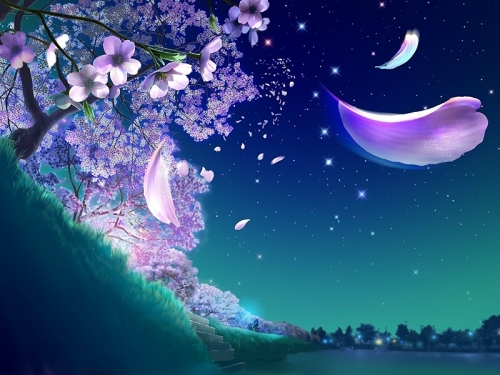"The mountains are so cold
not just now but every year
crowded ridges breathe in snow
sunless forests breathe out mist
nothing grows until Grain Ears
leaves fall before Autumn Begins
a lost traveler here
looks in vain for the sky" - Zen Hermit Hanshan (9th Century AD), The Collected Songs of Cold Mountain (by Red Pine, 2000), p39
 |
| HanShan - Cold Mountain, China. |
Hanshan was a Zen hermit who lived on a cold mountain range - the very place he took his name from, within the Tiāntái Mountains on the coast south of Shanghai and Hangzhou, China. He wrote poems on buildings and rocks during the Tang Dynasty; China's golden cultural era (618-907 AD).
During this period Zen practices were deeply established, and related arts flourished in many forms. There is a xiāo flute and 7 string Chinese zither piece dedicated to Hanshan the hermit. I am unsure as to when this melody, as well as lyrics, were created and given their title, however the song is very nice to play on the flute, so I have been practicing this a lot lately.
Here is a video of myself playing the first half of the song on my xiāo flute (the second half is pretty similar and the whole tune normally has a zither solo at the beginning, end, and in between the two flute parts):
Hanshan remains famous as a happy-go-lucky, detached, yet grounded character who turns our attention to nature as a resource for practice. Hanshan puts across his faith in nature and his expression when he writes in The Collected Songs of Cold Mountain (by Red Pine,1983), p303:
"Whoever has Cold Mountain's poemsHaving grown up in relatively meagre conditions on a 'cold mountain' myself, I feel much of what he says speaks to my heart. The feeling expressed when he writes the following reminds me of wet mornings walking a quarter of a mile up a mountain lane in the Welsh countryside most days of the year (Porter, 1983), p30:
is better off than those with sutras
write them upon your screen
and read them from time to time"
"Who takes the cold mountain road
takes a road that never ends
the streams are long and piled with rocks
the gorges wide and choked with grass
the moss is slick without any rain
the pines sing without the wind
who can get past the tangles of the world
and sit with me in the clouds?"
 |
| A Chinese painting of the Zen Hermit Hanshan. |
HanShan Temple, in SuZhou, China, is named after the hermit HanShan, and is famous for a poem written by the Tang Dynasty poet Zhang Ji called "A Night Mooring by Maple Bridge" (楓橋夜泊). It forms part of the Primary School curriculum in China, and goes as follows:
"While I watch the moon go down, a crow caws through the frost;
Under the shadows of maple-trees a fisherman moves with his torch;
And I hear, from beyond Suzhou, from the temple on Cold Mountain,
Ringing for me, here in my boat, the midnight bell."

Music and poetry has apparently always played a role in Chinese Zen Buddhism. Japanese 'Soto Zen' Founder Master Eihei Dogen speaks of his Chinese Zen Master, Tiāntóng Rújìng 天童如淨, in his book Shobogenzo as follows (Translated by Hubert Nearman, 2007) p763:
"within the Monks’ Hall the wooden han is now taken and struck, reverberating to the clouds, while in the Buddha Hall the bamboo shō [free reed musical instrument] is now blown, reverberating to the bottom of the water. At just such times, my late Master might inadvertently begin to recite a melodious poem about plum blossoms, such as the following:
When Gautama lost his worldly eyes,
Only a single branch of plum blossoms appeared amidst the snow.
Now everywhere new branches have sprung up
And, laughing, I delight in the spring wind’s scattering petals in wild disarray."

No comments:
Post a Comment